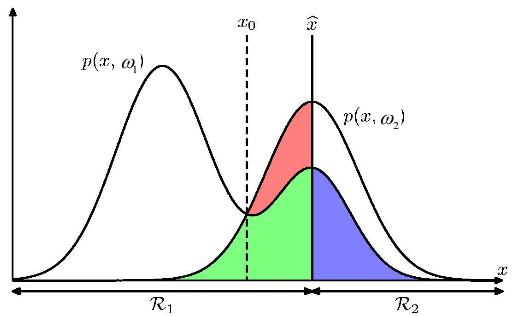Topics in Pattern Recognition and Machine Learning
Cancelled in winter term 2025/26!
Please note that the documents for the course are primarily made available via Panda. In case of doubt, the Panda documents are more up-to-date than the documents you can retrieve from this website.
Brief description

In the course News from Pattern Recognition and Machine Learning, the basic concepts of pattern recognition and machine learning are first briefly summarised. Selected topics are then discussed. The selection is based on current research topics and varies from year to year. Examples of such topics are
- Estimation of models with hidden variables to discover an underlying internal structure suspected in the data
- Bias-variance dilemma and trade-off between model detail and generalisation ability
- Graphical models
- Sequential data and hidden Markov models
- Special classification tasks (e.g. automatic speech recognition)
While the first part of the course consists of the usual lecture/exercise scheme, in the second part students will read, analyse and present recent publications. This may often include the programming of algorithms.
Lecture contents
- Fundamentals of statistical pattern recognition: Bayes' rule, learning of distribution densities, linear models for classification and regression, kernel methods
- EM algorithm for maximum likelihood and Bayesian estimation
- Models with discrete and continuous hidden variables: GMM, NMF
- Bias-variance dilemma and model selection
- Graphical models
- Hidden Markov models
- Deep neural networks
- Recent publications in pattern recognition and machine learning
Learning outcomes and competences
After attending the course, students will be able to
- select and train a suitable classifier for a given pattern recognition problem
- select a suitable approach for a given regression problem and learn the parameters on training data
- search for hidden structure in data using machine learning methods
- make a suitable choice for a model that represents a good compromise between level of detail and generalisation ability
- understand, analyse and evaluate recent publications in the field of pattern recognition and machine learning
The students
- have an understanding of the importance of the choice of model order on the quality of classification and regression
- have an understanding of the fact that the search for hidden variables is based on a priori assumptions that can strongly influence the result
- are able to familiarise themselves independently with the state of research in sub-areas of pattern recognition and machine learning by researching and studying the literature
- are able to categorise publications from this field in a larger context
- can transfer the knowledge and skills gained in this course to other disciplines
Methodical realisation
- Lectures with predominantly blackboard use, occasional slide presentation
- Classroom exercises with exercise sheets and demonstrations on the computer
- Instructions on how to analyse current scientific publications
- and subsequent independent familiarisation with specialist literature by the students
- Presentation of current publications by the students
Recommended literature
- R.O. Duda, P.E. Hart, D.G.~ Stork, Pattern Classification, Wiley, 2001
- K. Fukunaga, Introduction to Statistical Pattern Recognition, Academic Press, 1990
- C. M. Bishop, Pattern Recognition and Machine Learning, Springer, 2006
- C. M. Bishop, Pattern Recognition and Machine Learning, Springer, 2006
Classification
- Course for Master students in Electrical Engineering, Computer Engineering and Electrical Systems Engineering
- ECTS: 6
- Language: German or English (depending on preference)
- Semester: Winter semester
Lecture notes
Lecture slides
- Introduction
- Regression
- Information Theory and Machine Learning
- Discriminative Training
- EM Algorithm and Variational Inference
- Nonnegative Matrix Factorisation
- Deep Neural Networks - Part 1
- Deep Neural Networks - Part 2
- ASR
- Sequential Data
- Ensemble Learning and Decision Trees
- Seminar Topics 2019/2020
- Paper on hierarchical NMF
Other

